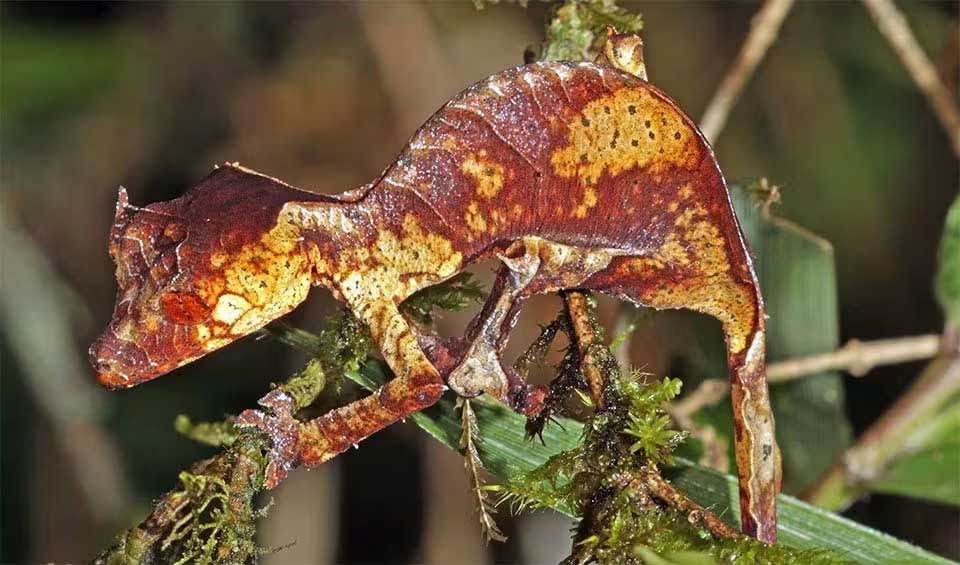One of the most remarkable reptiles found in the rainforests of Madagascar. This gecko gets its unique name from its eerie, almost otherworldly appearance, which is perfectly adapted for blending into its surroundings. The satanic leaf-tailed gecko is a master of disguise, with a body that looks just like a dead leaf. Its tail is flat and leaf-shaped, complete with notches, veins, and a slightly ragged edge, making it nearly impossible to distinguish from real leaves. The gecko’s skin is often mottled with shades of brown, tan, and gray, mimicking the appearance of dead foliage, which helps it hide from predators during the day.
This gecko has large eyes with vertical pupils that give it excellent night vision, as it is nocturnal and most active after dark. These big eyes also add to its striking appearance, giving it an almost hypnotic look. During the day, the Satanic leaf-tailed gecko stays completely still, lying flat against tree bark or among leaf litter, relying on its camouflage to stay hidden. This incredible ability to blend in is its primary defense against predators, such as birds and snakes.
One of the most fascinating aspects of the Satanic leaf-tailed gecko is its behavior when threatened. If it feels in danger, the gecko may open its mouth wide, displaying a bright red or orange interior, which contrasts sharply with its dull outer appearance. This sudden flash of color can startle predators, giving the gecko a chance to escape. Additionally, like other leaf-tailed geckos, it can drop its tail if caught by a predator. The tail will continue to wriggle, distracting the predator while the gecko slips away. The tail eventually regenerates, although it may not look exactly the same as the original.
Distribution
 Madagascar
MadagascarAnything we've missed?
Help us improve this page by suggesting edits. Glory never dies!
Suggest an editGet to know me
Terrestrial / Aquatic
Altricial / Precocial
Polygamous / Monogamous
Dimorphic (size)/ Monomorphic
Active: Diurnal / Nocturnal
Social behavior: Solitary / Pack / Herd
Diet: Carnivore / Herbivore / Omnivore / Piscivorous / Insectivore
Migratory: Yes / No
Domesticated: Yes / No
Dangerous: Yes / No




